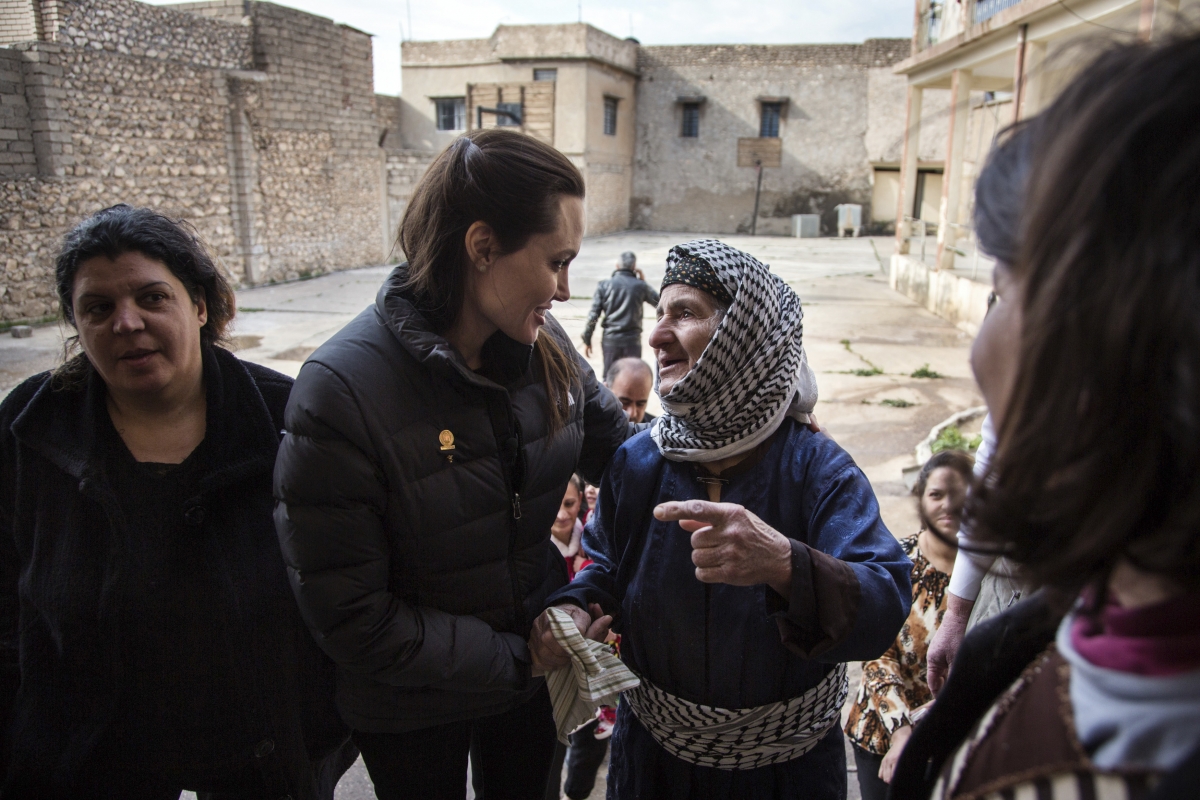Hollywood star Angelina Jolie, who also serves as a special envoy of the United Nations' refugee agency, has penned an emotional op-ed about her recent visit to a refugee camp in Iraq, describing accounts that left her "speechless."
"I have visited Iraq five times since 2007, and I have seen nothing like the suffering I'm witnessing now," Jolie wrote in the column that was published in The New York Times on Tuesday.
"These refugees and displaced people have witnessed unspeakable brutality. Their children are out of school, they are struggling to survive, and they are surrounded on all sides by violence," she wrote.
Jolie met Iraqi and Syrian refugees of the Christian and Yazidi minorities during her visit to northern Iraq on 25 January, including women who had lost their families and young girls who had been raped.
"On this trip I was speechless....What do you say to a mother with tears streaming down her face who says her daughter is in the hands of the Islamic State, or ISIS, and that she wishes she were there, too? Even if she had to be raped and tortured, she says, it would be better than not being with her daughter," Jolie wrote in the stirring column.
What do you say to the 13-year-old girl who describes the warehouses where she and the others lived and would be pulled out, three at a time, to be raped by the men? When her brother found out, he killed himself."
"How can you speak when a woman your own age looks you in the eye and tells you that her whole family was killed in front of her, and that she now lives alone in a tent and has minimal food rations?"
Jolie recounted heart-wrenching accounts of children left orphaned by the violence and stories of death and suffering, and lamented limited international action in the form of humanitarian aid and sanctuary to refugees.
"What does it say about our commitment to human rights and accountability that we seem to tolerate crimes against humanity happening in Syria and Iraq on a daily basis?"
"Who can blame them for thinking that we have given up on them? Only a fraction of the humanitarian aid they need is being provided... The doors of many nations are bolted against them. There is nowhere they can turn," she wrote.
She added that while other countries in the Middle East have taken in nearly four million Syrian refugees, they are reaching their limit.
"Much more assistance must be found to help Syria's neighbours bear the unsustainable burden of millions of refugees. Countries outside the region should offer sanctuary to the most vulnerable refugees in need of resettlement," she urged.
There are 3.3 million displaced people in Iraq, according to the UNHCR, while in Syria 7.6 million are internally displaced.
Jolie urged countries and international community to do more to help refugees and to "find a path to a peace settlement."
"It is not enough to defend our values at home, in our newspapers and in our institutions. We also have to defend them in the refugee camps of the Middle East, and the ruined ghost towns of Syria," she said.




















